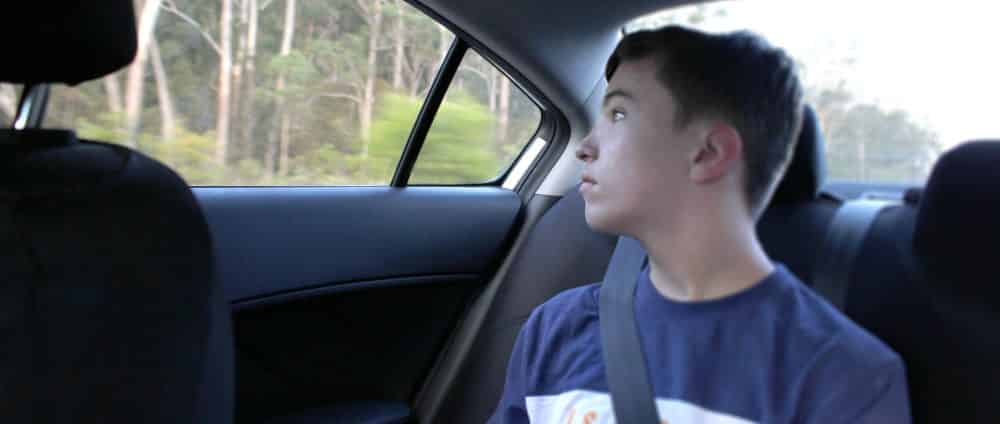Disclaimer: Only for fair use for educational purposes and illustration. We do not own the copyright to this video.
Life is not primarily a quest for pleasure, as Freud believed, or a quest for power, as Alfred Adler taught, but a quest for meaning. The greatest task for any person is to find meaning in his or her life.
Viktor Frankl, Man’s Search for Meaning
The road to addiction and relapse in recovery is paved with a slate of contributing factors from hereditary markers, genetics, and adverse early childhood experiences to depression, anxiety, PTSD, and other mental illnesses. The joint occurrence of addiction and mental disorders is so prevalent that they are referred to as co-occurring disorders or co-morbidities that require dual diagnosis treatment programs. A less discussed element—boredom—presents itself in alcohol and substance use disorders, especially among teenagers, and in adults who relapse while in recovery.
Boredom is a universal experience that people experience throughout their lives. People get bored because of a lack of variety, desire, interest, meaning, purpose, or engagement in their daily activities. Lacking scientific vernacular and medical gravity, the phenomena of boredom is discussed in clinical conversations in contradictory terms. On the one hand, it is viewed as a “fairly trivial discomfort that can be alleviated by a change in circumstances.” On the other, it is viewed as a “chronic condition that can have significant adverse consequences.” But it is a psychological truism that needs to be recognized as an agitator of alcohol and drug use, addiction, and relapse during recovery.
Covid-era shutdowns, social distancing, isolation from family, community, and society, remote work, and remote schooling exacerbated the problem of boredom and led to a significant rise in alcohol sales and consumption, drug use, relapse during recovery, and fatal overdoses.
When a person experiences a lull engaging in a challenging physical or mental activity or has a respite from one, the stillness can be quite satisfying.
A moment of respite can sharpen our senses and make us acutely sensitive to sensory stimuli. We have a heightened sense of observation and meaning-making. A tree in the distance we normally take for granted suddenly feels special. We see in a deeper way. But an extended period of deprivation from mental and physical challenges, when the mind and physical body are not engaged with anything, will become boring and the person will experience negative feelings that run the gamut from mild to severe. Boredom is marked by unpleasant feelings, discomfort, lack of motivation, listlessness, and low physiological arousal to external stimuli.
In its more serious iteration, boredom can present fatigue, depression, disinterest, irritation, and aggression. Literature by those in solitary confinement often references the state of boredom as worse than torture by prison guards. Viktor Frankel, the author of Man’s Search for Meaning wrote that boredom is the inevitable response to a life that lacks meaning.
Disregarding the aberration of the pandemic, most adults are inoculated from boredom due to hectic work and college schedules, personal obligations, and other activities. Young children with zealous and financially resourced parents are often over-scheduled with full school days followed by extracurricular activities They spend as many as twelve hours a day between breakfast and dinner on a wide array of structured activities, often mirroring the hectic pace of adult work schedules.
Teenagers in high school on the other hand have an excess of unstructured time. Standing at the intersection of childhood and adulthood, teens—who are no longer subject to heavily programmed and supervised activities of children and not yet ready for fully independent adulthood—find themselves with a lot of unstructured free time and vulnerable to boredom and its associated risks, especially the use of drugs and alcohol.
Most addiction in adults stems from teen experimentation, which makes boredom a serious concern that needs to be identified and addressed.

With the exception of a rare few, most people experience boredom on a regular basis.
The difference between those who overcome boredom and those who don’t is a willingness to confront the condition, determine its causes, and move past it by replacing the negative state of boredom with a positive experience that is fulfilling.
A willingness to take on the challenging work of acting in a constructive, healthy, creative manner to address boredom is essential to overcoming it.
Those who don’t pursue healthy and positive alternatives to boredom usually turn to negative ones to quell its unpleasant effects.
Drug and alcohol use is a predictable, easy solution to boredom for many of them. It is especially true during adolescence when many people have their first encounter with drug and alcohol use and imitation to addiction.
Teenagers, who stand at the intersection between structured childhoods guided by parents and self-directed adulthood, and are unfamiliar with coping skills to mitigate boredom can find themselves drawn to high-risk behaviors. Drug and alcohol use was found in one study to be evident in teenagers with a proneness to boredom.
Interestingly, those who identified themselves as prone to boredom were less inclined to be involved in sports and other hobbies and more inclined to engage with technology, social media, and television. A number of studies show predictable antidotes to boredom practiced by teenagers through “exclusion, escape, experimentation, and excitement”.
For those in recovery from addiction, abstinence and sobriety can easily be threatened by triggers.
Given the complexity of alcohol and drug addiction, and the powerful role of brain chemistry on this chronic disease, the occurrence of cravings and triggers that lead to relapse after treatment is hardly surprising.
Abstinence is achievable when someone is in a pure, sanitized bubble, far from conditions and environments that trigger a relapse. But relapse is an occupational hazard for those in recovery after they leave treatment.

Many people who have been treated for addiction and are in recovery have conflicted feelings about being sober. They may fear that a life of abstinence is boring and that all the joy, fun, and camaraderie of their past addicted life has been lost. When they reflect on their past, they evoke idealized visions of drug-fueled fun, carefree living, partying, war stories about their drug use, and wild times. They tend to idealize their past, fantasize about the euphoria and serenity bought with drugs and alcohol, and ignore the terrible effects of their addiction.
Craving for drugs after treatment is usually set off by internal triggers and external triggers, and cues from the past. Negative emotions such as fear, guilt, hate, and shame, and normal emotions such as boredom, nervousness, sadness, and embarrassment can make those in recovery vulnerable to a relapse. External cues include seeing friends, family, and others from the past who participated encouraged, provoked, or enabled drug and alcohol use. Mere contact with these relics from the past can trigger an association with drug use, and create desire, longing, and craving in a newly sober person.
Revisiting places and attending events that were once the site of drug and alcohol consumption can also trigger cravings. Other major triggers are stress and anxiety, which can be managed with the behavioral tools learned in treatment. Relapse often happens because of boredom during recovery and the refusal to recognize and address it by changing the circumstances.
Staying sober in treatment is easy. Surrounded by like-minded people also in recovery, supported by therapists and counselors, encouraged and motivated by peer support groups, far removed from the location, family, and environment, people manage to stay happily sober.
But leaving treatment and going back to the wider world where drugs and alcohol are freely available is hard on those in recovery. To avoid relapse because of boredom, understand and avoid the triggers.
The only solution to stay sober, remain in recovery, and stave off boredom is to link up with your tribe.
Everyone in recovery is part of a tribe bound by a single narrative—the struggle to survive without alcohol or drugs, after falling into the pit of addiction. It is a hero’s and “shero’s” journey to self-actualization that can only be understood by others on the journey. As such, recovery is a communal journey. No one can remain sober or avoid relapse alone. It is a shared journey that requires us to open up, show our vulnerabilities and weaknesses, and ask for help and support when we need it.
To remain sober and safe may require us to reject the past, the site of our addiction, and reinvent ourselves in a tribe of like-minded people aspiring to be sober, and seeking to flourish and thrive in a drug and alcohol-free space.
The recovery community is vital around the globe with reach in every town, city, state, and country. A person striving for sobriety and trying to avoid relapse has many resources including AA and NA groups, sponsors, friends in recovery, therapists, groups, and phone and chat support. Surrounding ourselves with the resources available to us increases our chances of maintaining sobriety and avoiding relapse.

Recovery from addiction is a heroic achievement. It opens doors to a new future and identity. Working towards a goal, such as a college admission, training to be a professional in the addiction treatment field, or a health-oriented goal, is an act of self-love that is a rewarding, enriching experience. Focusing on such visionary goals will stave off boredom and prevent relapse.
Overcoming addiction, abstaining from drugs and alcohol, staying sober, and being vigilant about avoiding relapse is a lifelong effort. It may be daunting and terrifying to think of never having a drink, or ingesting a drug, ever again for the rest of one’s life. But the person in recovery can reframe the goal on a daily basis by committing to stay sober just for that one day.
Renewing the commitment to stay sober the next day, and the next, and the next, ad infinitum become a way to abstinence. Attaining a day of sobriety on a daily basis adds up to a lifetime of sobriety, instead of focusing on the Herculean task of permanent sobriety which is too often elusive.
The field of addiction medicine is racing to produce drugs that prevent or decrease the chances of relapse. While experimental drugs submit to the rigors and hurdles of clinical trials, discoveries, longitudinal studies, and approval; the gold standard in current treatment offers evidence-based medical, behavioral, and social therapies.
At New Leaf Detox & Treatment, we are committed to meeting the needs of our patients with the most advanced best practices in addiction medicine and treatment and evidence-based standards of care, while always mindful of each client’s individual needs.
After the extensive patient-provider engagement, careful screening, and medical and psychological evaluation, our clinician’s design individualized plans to meet each patient’s specific needs. The plans are comprehensive in scope using a variety of treatment modalities from our cornucopia of specialized care plans that include Medication Assisted Treatment.
New Leaf’s Medication Assisted Treatment plans for best client outcomes to feature three of the four FDA Approved MAT drugs: Buprenorphine, its extended-release injection Sublocade, and Naltrexone. These three MAT regimens and protocols have high success rates for clients when complemented with counseling and psychosocial support.
The patient begins cognitive-behavioral treatment with an individual therapist as well as in groups with a counselor to address the whole host of issues afflicting the patient, including anxiety disorders. Psychotherapy plans and specific treatment modalities tailored for the patient include individual counseling, group counseling, anxiety-focused therapy groups, and process groups and activities.
The primary clinician and individual therapist and group counselor work in concert to treat the patient by resolving the underlying issues that led to addiction, followed by a variety of custom treatments that fortify the patient, clinical assessments throughout the process, and a considered discharge plan. Peer support, onsite medical assistance, family involvement, and post-treatment follow up support are part of New Leaf’s standard of care.
New Leaf Detox and Treatment
63 Mallorca, Laguna Niguel,
CA, 92677
(844) 929-0067